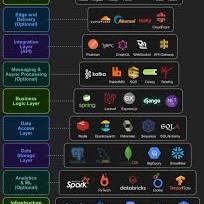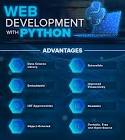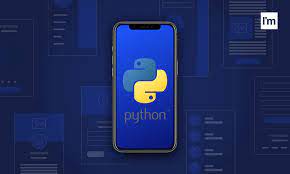Master Java Programming with a Skilled Java Tutor
The Importance of Having a Java Tutor
Java is a widely-used programming language known for its versatility and reliability. Whether you are a beginner looking to learn the basics or an experienced developer seeking to enhance your skills, having a Java tutor can be incredibly beneficial.
Personalized Learning Experience
One of the key advantages of having a Java tutor is the personalized learning experience they provide. A tutor can tailor their lessons to suit your individual learning style and pace, ensuring that you grasp the concepts effectively.
Expert Guidance and Support
A Java tutor brings expertise and experience to the table, offering guidance and support as you navigate through complex programming concepts. They can clarify doubts, provide real-world examples, and offer insights that help deepen your understanding of Java.
Hands-On Practice
Practice is essential in mastering any programming language, and a Java tutor can facilitate hands-on practice sessions to reinforce your learning. By working on coding exercises and projects under the guidance of a tutor, you can apply theoretical knowledge to practical scenarios.
Continuous Feedback and Improvement
A Java tutor can provide valuable feedback on your code structure, logic, and problem-solving approach. This feedback loop enables you to identify areas for improvement and refine your coding skills over time, making you a more proficient Java developer.
Building Confidence and Motivation
Learning programming can be challenging at times, but with a supportive Java tutor by your side, you can build confidence in your abilities and stay motivated throughout your learning journey. Having someone who believes in your potential can make a significant difference in your progress.
Conclusion
In conclusion, having a Java tutor offers numerous benefits that contribute to your growth as a programmer. Whether you are aiming to start a career in software development or simply want to expand your skill set, investing in a Java tutor can be a wise decision that accelerates your learning process and enhances your proficiency in this powerful programming language.
Top FAQs About Learning Java: Self-Study, Costs, and Easy Learning Tips
- Can Java be self taught?
- Can I learn Java for free?
- How much does a Java tutor cost?
- How to learn Java easily?
Can Java be self taught?
Many individuals wonder if Java can be self-taught. While it is possible to learn Java independently through online resources, tutorials, and practice, having a Java tutor can significantly enhance the learning process. A Java tutor can provide personalized guidance, clarify complex concepts, offer real-time feedback, and facilitate hands-on practice sessions that accelerate the learning curve. With the help of a tutor, learners can gain a deeper understanding of Java programming principles and build confidence in their coding skills more efficiently than through self-study alone.
Can I learn Java for free?
Learning Java for free is indeed possible, thanks to the wealth of online resources available to aspiring programmers. Many websites offer free tutorials, courses, and documentation that cover various aspects of Java programming. Platforms like Codecademy, Coursera, and Khan Academy provide introductory Java courses at no cost, allowing learners to grasp the fundamentals without any financial commitment. Additionally, open-source communities and forums offer support and guidance for self-learners looking to delve into Java development without incurring expenses. While paid resources may offer more comprehensive learning experiences, individuals with a dedication to self-study can certainly acquire Java skills for free through the plethora of online resources at their disposal.
How much does a Java tutor cost?
When considering the cost of a Java tutor, it is important to understand that pricing can vary depending on various factors such as the tutor’s experience, qualifications, location, and the level of expertise you are seeking. Typically, Java tutors may charge an hourly rate ranging from $30 to $100 or more. Some tutors offer package deals for multiple sessions or specialized courses that may affect the overall cost. It is advisable to research and compare different tutors to find one that fits your budget while also providing quality instruction tailored to your learning needs.
How to learn Java easily?
Learning Java easily requires a structured approach and dedication. One effective way to master Java is by seeking the guidance of a knowledgeable Java tutor. A tutor can provide personalized lessons, clarify doubts, offer hands-on practice, and give valuable feedback to help you understand Java concepts better. Additionally, leveraging online resources, practicing regularly, working on projects, and staying motivated are key elements in making the learning process smoother. By combining these strategies with the support of a Java tutor, mastering Java can become an achievable goal for anyone looking to enhance their programming skills.








